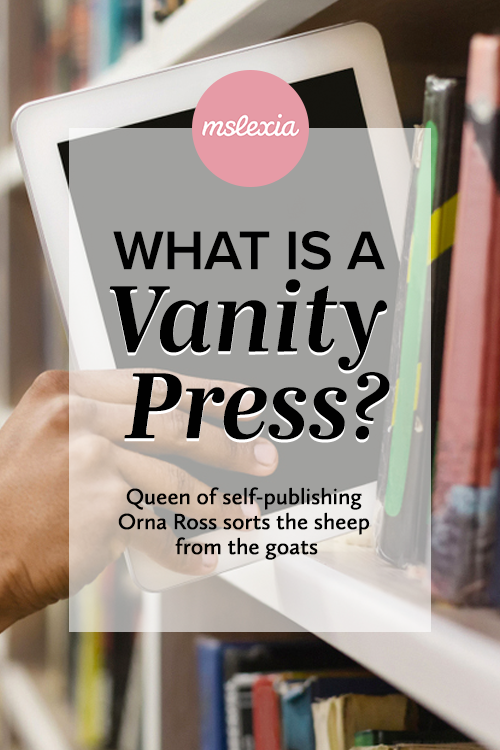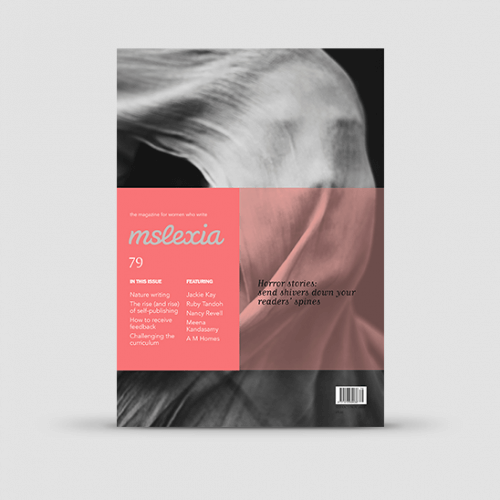
The advent of print-on-demand and ebook production means that the self-publishing sector is growing rapidly, boosted by the extraordinary successes of some bestselling self-published authors – such as E L James , Rachel Abbot and L J Ross, to name but a few. But there’s a world of difference between a reputable self-publishing company and a vanity press.
The definition of a vanity press has changed. It used to be the catch-all term for all self-publishing, prompting images of pompous bewhiskered Victorian gentlemen publishing their memoirs. But with the recent expansion of self-publishing and its evolution into a source of highly respected bestselling books, the term ‘vanity press’ is no longer appropriate for the majority of self-publishing companies.
These days the label ‘vanity press’ is reserved for companies that pose as bona fide trade publishers and exploit an author’s ego – their ‘vanity’ – in order to extract money for printing their book.
A vanity press will falsely praise the manuscript, regardless of its merit, and dangle the carrot of possible eye-watering sales, Hollywood film rights and multi-language publication. They try to fool authors into believing they are dealing with a ‘proper’ publisher – and unfortunately there are many thousands of authors out there who fall for the act.
Vanity presses are very effective at what they do. A Google search for ‘self-publishing’ usually puts the most incorrigible companies at the top of the list, because they have forked out a great deal on advertising to make sure their names pop up first. These people don’t make money out of selling books – because they’re not in the business of selling books. Their income comes from the profit they make from printing manuscripts. They have rooms full of sales people – but they’re selling to writers, not to bookshops
I must stress that not all self-publishing companies are vanity presses. So how do you tell the difference? At the Alliance of Independent Authors (ALLi) we provide a number of resources to help.
Choose the Best Self-Publishing Services by John Doppler is a guide to choosing the best service for your needs, with a checklist of things to look out for, and a list of the 100 best companies as assessed our Watchdog Desk. The ebook costs just £4.59 (free to members of ALLi) – and it’s updated regularly.
We award ALLi ‘Partner Membership’ status to approved services that have agreed to be vetted and to abide by our Code of Standards. They can be found through a searchable database in the member zone of our website, and via our globally available Partner Member directory.
Our Watchdog Desk is an outreach service to the wider author community that provides a rating system to rank companies according to the quality of the services they provide – and issues warnings about those we have received a lot of complaints about. It’s not entirely comprehensive, because the sector is continually evolving as companies start up, fold, restart under different names. The booming market for audiobooks, for instance, has led to the emergence of many new companies touting unrealistic results for unwary authors.
A few definitions
The terminology of publishing and self-publishing can be confusing, so we have established the following definitions in order to minimise ambiguity.
Trade publishers
This is our term for companies that pay the author for the right to publish their book, in the form of an advance (payment up front) and/or royalties (a percentage of the cover price on every copy sold). Trade publishers are loosely divided into big ‘corporate’ trade publishers such as Penguin Random House and Harper Collins, and ‘independent’ or ‘indie’ publishers, which are smaller companies ranging from established players such as Bloodaxe Books and Oneworld Publications to teeny start-ups like Broken Sleep Books (interviewed in Issue 90 of Mslexia).
Hybrid publishers
A hybrid publisher provides a mix of trade-publishing and self-publishing services in the same contract. Hybrid publishers vary widely in terms of business models, methods of working with writers, and approaches to marketing and distribution – but all curate the books they help to publish. Many also offer physical bookstore distribution. Although there are some reputable hybrid publishers, there are many substandard services that use a hybrid publishing model, sometimes as a means of camouflaging exploitative vanity press operations.
Author services
This is the term we at ALLi like to use for the wide range of services on offer to writers who want to publish their own work. These include editing, design and marketing services as well as the actual printing. Some companies specialise; others offer various packages of services depending on how much help you want with your book. They differ from the vanity presses in that they are completely clear that they are offering a service for a fee, and make no promises about sales or film rights, etc.
Vanity presses
These companies offer the same services as author services but pretend that they are trade publishers, and raise wildly unrealistic expectations in the authors about the likely success of their books
ORNA ROSS is a novelist and poet, and a former literary agent, who is the founder of the Alliance for Independent Authors (ALLi), a professional association for authors who self-publish their work. She has been named by the Bookseller as one of the top 100 most influential people in publishing today. Orna's lead article on the rise (and rise) of self-publishing is in Issue 79 of Mslexia and on the ALLi website.
THE ALLIANCE OF INDEPENDENT AUTHORS is a non-profit providing support and guidance for writers who want to publish their own work. Membership starts at £69 a year and includes access to ALLi’s team of experts, free advice guides including the invaluable Approved Services directory, members’ forum where you can share experiences, and more.



